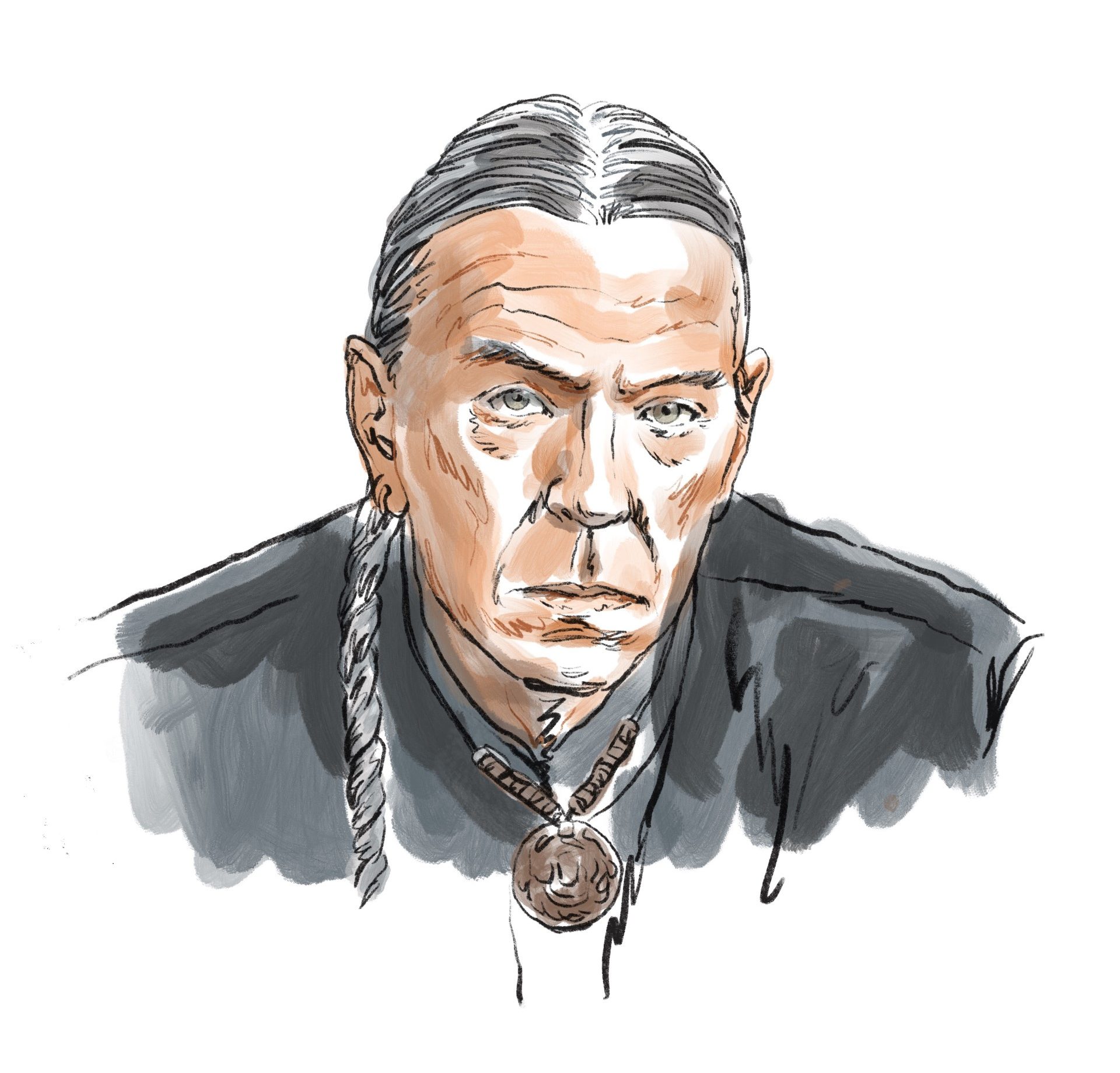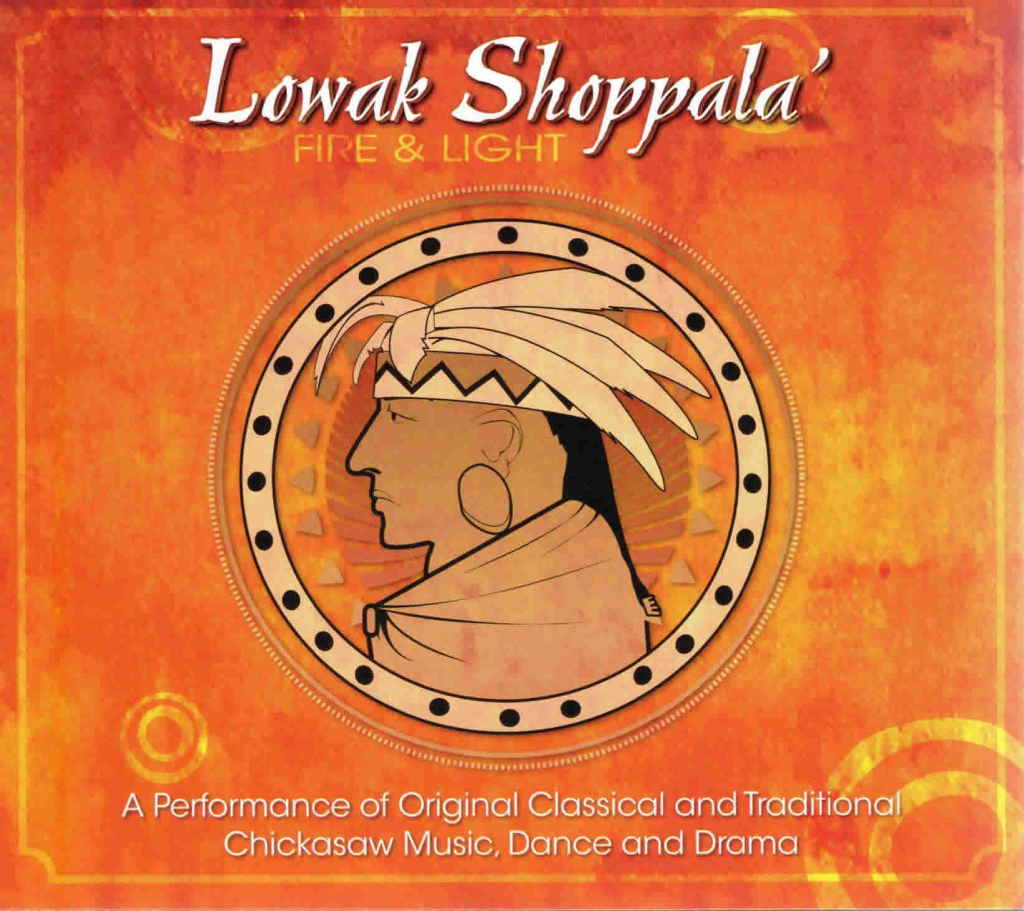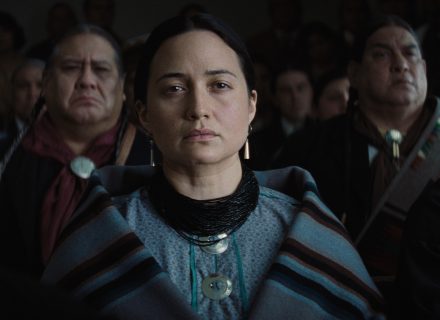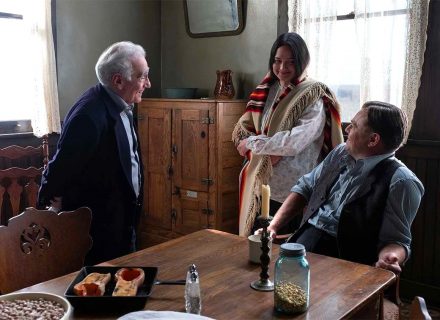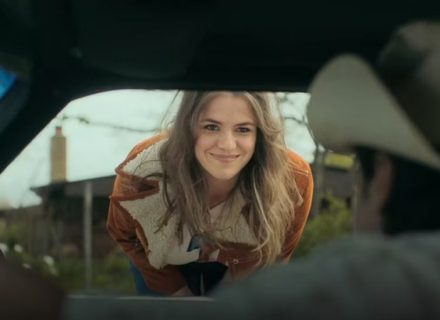Chickasaw classical musician Jerod Impichchaachaaha’ Tate talks playing at Carnegie Hall, Reservation Dogs, and his newest album.
C&I: This March, you’ll be at Carnegie Hall for the New York premiere of “Clans,” a major movement from your longer composition Lowak Shoppala’ in a new orchestral arrangement. What was your reaction when you got the phone call or the email or the carrier pigeon message with the good news?
Jerod Impichchaachaaha’ Tate: [Laughs.] Lots of gratitude, and a lot of feeling of great fortune. This actually will be the second of three. I played Carnegie Hall last spring, and we’re doing it again this spring, and then there’s another performance coming up in the [Isaac Stern Auditorium] for the spring afterward. So it looks like I’ll be doing Carnegie Hall three times in three years, which is pretty darn amazing. Yeah, it’s kind of crazy. Let me put it this way: I feel like Forrest Gump. So I am Jerod Gump. How in the world did I end up standing in this position? I’m kind of beside myself with disbelief, honestly.
C&I: What was the first time like? Were you nervous?
Jerod: Oh, no, I wasn’t nervous. I was very, very excited. At this age, I feel pretty confident about the art that I’m bringing to the stage, and I also really believe very deeply in what I’m conveying to the audience. So I feel really good about it. And I’m feeling I’ve had so much opportunity in being able to express the work that I do as a classical Native musician. Any opportunity that I have to snag appearances on world stages like this, I’m on it really, really fast, with great enthusiasm. It’s because I deeply believe in my mission. I’m also excited about all the people that I’m surrounded by who perform my works and I get to work with them. I guess, honestly, a lot of my possible nerves are replaced with a great sense of excitement and opportunity, and enthusiasm in the vision that I have.
C&I: You talk about your mission to represent Native American classical composers. How heavily does that responsibility weigh on your shoulders?
Jerod: It falls quite heavily because I feel like I’m carrying the weight of ancestry on many fronts. First of all, I am currently surrounded by an enormous amount of contemporary Native artists in many fields. Just to name a few: Joy Harjo is our three-time American poet laureate, and she’s Muskogee Creek from Oklahoma. She’s a good friend of mine and I actually have composed to her poetry. Sterlin Harjo is the director of Reservation Dogs, and he’s out there. John Herrington is a Chickasaw astronaut whom I [collaborate] with on my works. And so I feel a responsibility to live up to the legacy that they are currently building. I guess I’ve just been raised by both parents to really seize the day and basically throw myself into the ring with great discipline and great enthusiasm — while also accepting great responsibility.
C&I: What classical composers of any background do you think have had the most influence on you?
Jerod: Oh, wow, that’s a really good one. I would say there are two. One is Dr. Louis W. Ballard, who was Quapaw and Cherokee from Oklahoma, and one of our first American Indian symphonic composers. And I would say the other is Tchaikovsky. And they both were very, very focused on their ethnic heritage in their compositions and very theatrical and romantic about their sense of ethnic identity. Those are the two that I would say are my biggest influences.
C&I: Have you ever felt tempted to detour out of the classical realm for a while and maybe write a hip-hop concerto, or a country-music string quartet piece?
Jerod: [Laughs.] I’ll be honest with you — no. I’m a big fan of many genres of music, and I’ve become a very big fan of bluegrass over the years. In fact, my cousin Katie Barrick is a famous Chickasaw bluegrass fiddle player here in the state of Oklahoma. And I’m also a kid who grew up on Motown, so I’m influenced by the studio musicians of the Motown era. I mean, you want to talk about incredible playing? But again, I’ve got to be honest with you: I am not talented enough to cross genres like that. I may have fantasies of crossing genres, but I just don’t feel like I’ve got the capability.
C&I: Finally, let’s assume someone reads this and asks, “Where can I hear some of this guy’s music?” Where would be a place for them to start?
Jerod: Oh, I would say the album entitled Lowak Shoppala’ — Fire and Light. And you can just Google “Jerod Tate.” If you put “Chickasaw” and then “Jerod Tate,” you’re going to find me. And my music is all over Spotify, YouTube, Amazon, and also on SoundCloud. But Lowak Shoppala’, I would say, is a very good gateway into the work that I do.
This article appears in our February/March 2024 issue.
Find out more about Tate and his body of work at jerodtate.com.
Header Image and Album Cover: Courtesy of Jerod Impichchaachaaha’ Tate







